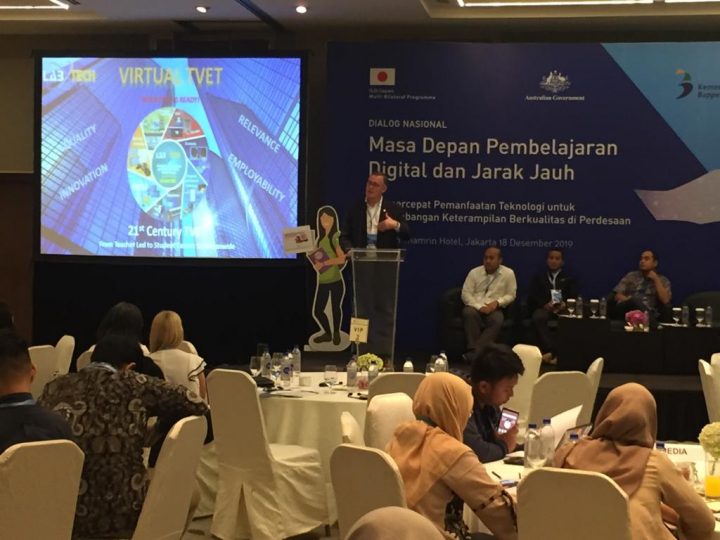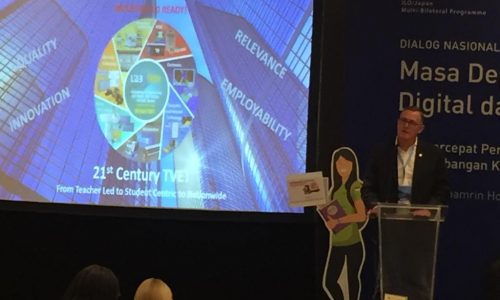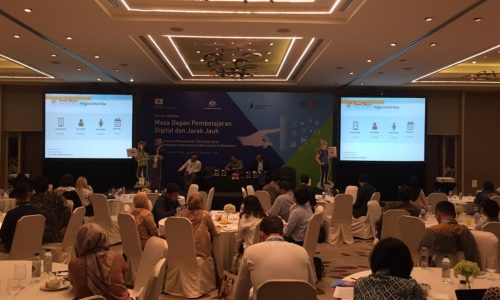In December 18th 2019, Labtech had the opportunity to showcase the Virtual TVET at the National Dialogues of the ILO Japan Conference on the theme of The Future of Digital and Distance Learning: Accelerating the Use of Technology to Deliver Quality Skills Development in Rural Areas located in Jakarta. Access to education and skills development is a fundamental human rights and an indispensable prerequisite for Decent Work. While technical and vocational education and training (TVET) has been improving in Indonesia, regional disparities in the access to and the quality of TVET still remain as a challenge. In fact, Indonesia’s geography, the world largest archipelago, militates against the cost effective and equitable delivery of TVET in rural and remote areas.While the Java is relatively densely populated, the access to quality training in rural areas is still limited; let alone outside the Java.
Today’s technologies provide a viable answer to geographic divide in the access to TVET. Digital/distance learning reduces the cost of TVET in rural areas and assure the same quality learning experiences in both urban and rural areas. The current pace of increase in the number of Internet users and diffusion of smart phones in Indonesia indicates that harnessing technologies in TVET is within the reach. Indeed, though traditional classroom teaching is still the mainstream modality of learning, learning online is rapidly becoming a part of learning practices of younger generations.Countries with large territories strategically use distance learning to skill their rural population. A similar strategy could be considered in Indonesia.
Labtech has thought about it a lot. So we joined the ILO to help provide ideas and display ideas that we have developed. Virtual TVET as developed by Labtech is starting to talk about transformative learning technology for training institutions. For our representatives, it is a new way to upgrade and to keep labs up-to-date and offer new forms of digital learning and to lower the costs of training compared to traditional approaches. This has became a major focus and commitment for Labtech in recent years. We have expanded our Digital Content Production unit and have integrated the development in with our extensive R&D department and now have dozens of experienced personnel and subject matter experts, who are designing and developing new content everyday. We have completed our first round of 55 modules in Automotive and HVAC areas, including a number of Hybrid Engine and Electrical Vehicle Systems modules and are now concentrating on Electronics and Electrical areas.




